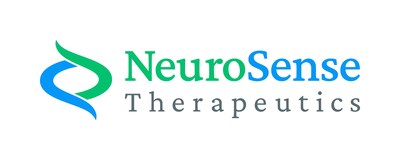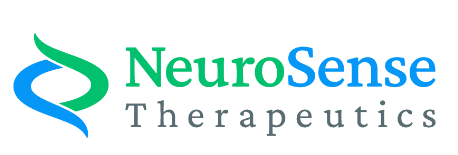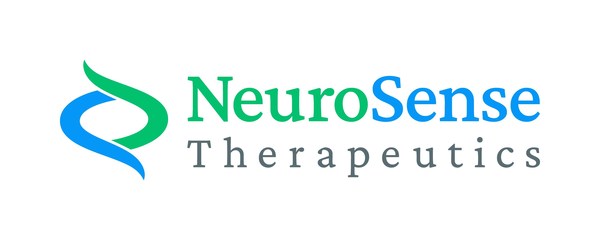PhaseV's Causal Machine Learning Predicts High Probability of Success in Multiple ALS Subgroups for NeuroSense's Phase 3 Trial
CAMBRIDGE, Mass., May 14, 2024 /PRNewswire/ -- NeuroSense Therapeutics (Nasdaq: NRSN) ("NeuroSense"), a company developing novel treatments for severe neurodegenerative diseases, today announced that it partnered with PhaseV, a pioneer in causal machine learning (ML) for clinical trial analysis and optimization, with respect to the planned Phase 3 trial of PrimeC as a treatment for amyotrophic lateral sclerosis (ALS).

As part of the collaboration, PhaseV conducted an independent analysis of NeuroSense's PARADIGM Phase 2b study using a causal ML and predicts a high probability of success in multiple subgroups for the planned Phase 3 trial of PrimeC as a treatment for ALS. The external results provide important insights that will significantly inform study design, patient enrollment and ensure cost-effectiveness.
"There remains a critical need for new innovative approaches to address this devastating neurodegenerative disease," said Alon Ben-Noon, CEO of NeuroSense. "Our recently announced subgroup analysis from the PARADIGM study is very encouraging and suggests the potential of PrimeC to change this reality. Through our initial collaboration with PhaseV, we gained an even greater understanding of the effect of PrimeC across multiple patient subgroups. We will apply these insights to optimize the design of our Phase 3 study with the aim of maximizing meaningful clinical results that will differentiate PrimeC in the market. We plan to continue to collaborate with PhaseV as we develop our Phase 3 trial."
NeuroSense Therapeutics recently reported positive efficacy and safety data from its Phase 2b trial (PARADIGM) with its lead drug candidate for ALS, PrimeC, and is planning on embarking on a Phase 3 pivotal trial in the next few months. In addition to PrimeC demonstrating a statistically significant 37% slowing of disease progression, as measured by the ALSFRS-R score (p=0.03), in the per-protocol population from the PARADIGM trial, it also announced a statistically significant slowing of disease progression in high-risk ALS patients treated with PrimeC by 43% (p=0.02) as compared to placebo in the pre-specified per protocol (PP) population analysis after 6 months of treatment. The slowing of disease progression demonstrated by PrimeC versus placebo translates to a 5.04 points difference in the ALSFRS-R in favor of PrimeC (Confidence Interval: 0.862, 9.214; n=38).High-risk patients, defined by the European Network for the Cure of ALS (ENCALS) Risk Factor as those with a higher risk for rapid disease progression, comprise approximately 50% of the total ALS population.
NeuroSense soon plans to submit its End of Phase 2 package to the FDA and EMA, including the updated Phase 3 study protocol, which will be discussed in the meetings.
"Although there is an improved understanding of the underlying mechanisms of ALS, therapeutic options remain limited due to the complexity and heterogeneity of the disease," said Dr. Raviv Pryluk, CEO and Co-founder of PhaseV. "NeuroSense's ALS drug candidate PrimeC showed great promise in its Phase 2b study. Through a unique combination of causal-ML, real-world data, and advanced statistical methods, we confirmed the potential clinical benefit of PrimeC and provided actionable insights for the Phase 3 study. Our analysis predicted a high rate of success for PrimeC in the Phase 3 clinical trial for multiple recommended subgroups."
PhaseV's proprietary technology addresses the challenges of drug development by providing tools for the identification of subgroups and endpoints most likely to succeed in subsequent clinical trials. This has helped companies to better understand how their drug candidates will perform in Phase 3 clinical trials and to optimize the design of the Phase 3 trial accordingly in order to achieve meaningful and successful outcomes.
About NeuroSense
NeuroSense Therapeutics, Ltd. is a clinical-stage biotechnology company focused on discovering and developing treatments for patients suffering from debilitating neurodegenerative diseases. NeuroSense believes that these diseases, which include amyotrophic lateral sclerosis (ALS), Alzheimer's disease and Parkinson's disease, among others, represent one of the most significant unmet medical needs of our time, with limited effective therapeutic options available for patients to date. Due to the complexity of neurodegenerative diseases and based on strong scientific research on a large panel of related biomarkers, NeuroSense's strategy is to develop combined therapies targeting multiple pathways associated with these diseases, with a primary focus on ALS.
For additional information, we invite you to visit our website and follow us on LinkedIn.
Forward-Looking Statements
This press release contains "forward-looking statements" that are subject to substantial risks and uncertainties. All statements, other than statements of historical fact, contained in this press release are forward-looking statements. Forward-looking statements contained in this press release may be identified by the use of words such as "anticipate," "believe," "contemplate," "could," "estimate," "expect," "intend," "seek," "may," "might," "plan," "potential," "predict," "project," "target," "aim," "should," "will" "would," or the negative of these words or other similar expressions, although not all forward-looking statements contain these words. Forward-looking statements are based on NeuroSense Therapeutics' current expectations and are subject to inherent uncertainties, risks and assumptions that are difficult to predict and include statements regarding the benefits of the collaboration with Phase V and the timing for a planned End of Phase 2 meeting with the FDA and EMA. Further, certain forward-looking statements are based on assumptions as to future events that may not prove to be accurate. The future events and trends may not occur and actual results could differ materially and adversely from those anticipated or implied in the forward looking statements. These risks include the risk that the collaboration with Phase V will not bring the expected benefits; the potential for PrimeC to safely and effectively target ALS; preclinical and clinical data for PrimeC; the uncertainty regarding outcomes and the timing of current and future clinical trials; the development and commercial potential of any product candidates of the company; and other risks and uncertainties set forth in NeuroSense's filings with the Securities and Exchange Commission (SEC). You should not rely on these statements as representing our views in the future. More information about the risks and uncertainties affecting NeuroSense Therapeutics is contained under the heading "Risk Factors" in the Annual Report on Form 20-F filed with the Securities and Exchange Commission on April 4, 2024 and NeuroSense Therapeutics' subsequent filings with the SEC. Forward-looking statements contained in this announcement are made as of this date, and NeuroSense Therapeutics Ltd. undertakes no duty to update such information except as required under applicable law.
Logo - https://mma.prnewswire.com/media/1707291/NeuroSense_Therapeutics_Logo.jpg
SOURCE NeuroSense



